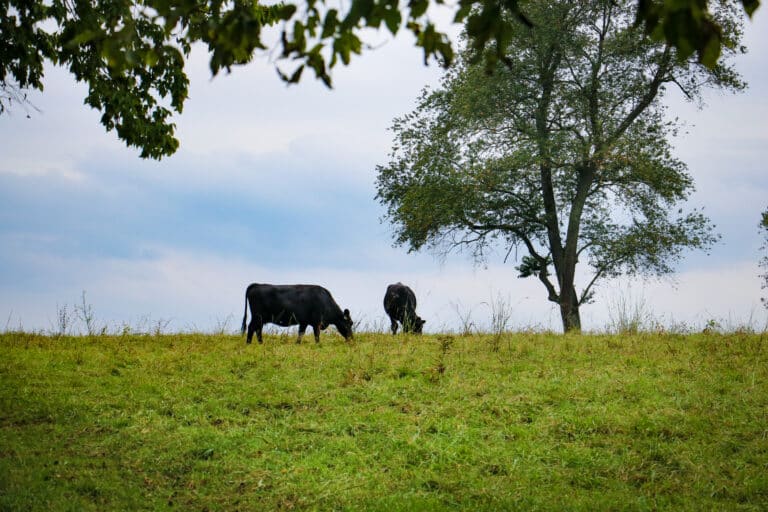
“Leave the world better than you found it” is a phrase I’m no stranger to, especially through my exploration and adoption of organic farming over the years. When I take visitors to the farm on a tour, our first stop is an empty field. I explain to them that this is our “solar powered hamburger factory” and that our work to restore and actively replenish the land we’re fortunate to farm on starts from the ground up, literally.
That’s because we practice what’s called regenerative agriculture, where we do all that we can to bolster soil health first and foremost and sequester carbon. On the produce front, seeding and cultivating feeds soil bacteria and fungi which in turn releases important nutrients and minerals without the need for fertilizers and toxic chemicals meant to stimulate growth. We also make sure to time planting and harvesting to avoid overly wet conditions, as doing so can disturb and damage the soil structure.
But, I often get asked, what about our livestock?
In recent years as plant-based proteins have risen in popularity, there have been many claims – some more sensational in nature – that beef in particular is bad for the environment. But the reality is that when raised our way, it’s quite the opposite.
At the heart of it all is the implementation of rotational grazing, and it’s something we do with all of our livestock. Instead of remaining in one section of land, our cattle are rotated across hundreds of acres of pastures for more than 850 days. As they graze on grass they also keep the weeds in check, while the nutrients in the soil that are being depleted get replenished in the form of manure, which helps more grass to grow. Each pasture is also given time to rest after the cattle are rotated to the next area we set with portable electric fence every 40 days or so to allow local ecosystems to continue to flourish. As a point of comparison, traditional continuous grazing means that the herd is kept in one pasture. This exposes them to more parasites, exposes and disturbs the soil on a much larger scale since the cattle are overgrazing down to the soil, and reduces forage diversity.
Rotational grazing is more labor intensive and building healthy soil back up takes years but knowing that we’re making positive, measurable contributions to, yes, leaving the world better than we found it, makes it all beyond worth it. Regenerative agriculture creates a closed loop within our farm system and breaks cycles in the best of ways. And the meat tastes all the better for it!
If you’d like to taste the difference, try our grass-fed and grass-finished certified organic Wagyu-Angus beef and help us heal the planet, you’re in luck! We just restocked our online shop and we’ve got plenty of premium steaks and other family favorite cuts to choose from as well as bundles for sampling a little bit of everything.
Mac Stone


Made with 
